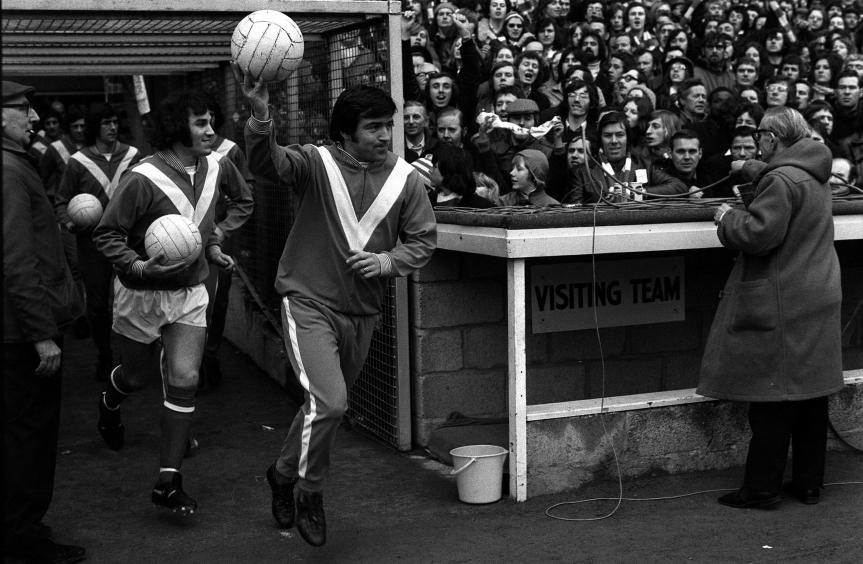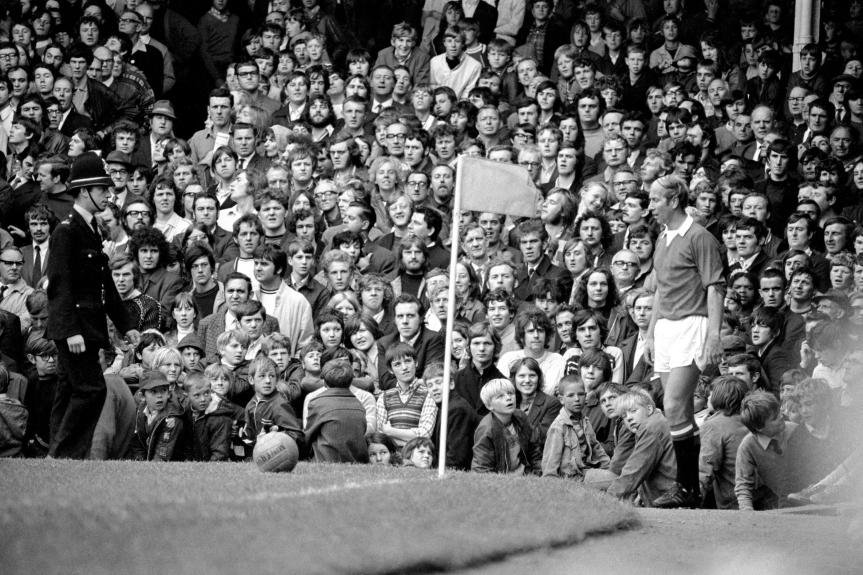HE MAY not have been everyone’s cup of tea, but it was quite hard to dislike Terry Venables. He was your original London football man: a snappy dresser, street-wise, innovative, flashy, eclectic and, above all, quite a talent. In fact, at his best, he was an excellent player, one that always had his eye on creating something unusual on the field of play. There was also a bit of ego wrapped up in that cheeky, Eastender persona, a facet of his character that not everyone could deal with. His passing, at the age of 80, represents the end of one of football’s most colourful careers.
Terry Venables was born on January 6, 1943. You could say that he entered the world ahead of his time. Venables would arguably have slotted into contemporary management far easier today than he did in the 1970s. He was a savvy coach, an inventive manager that was influenced by continental techniques and cunning. Free kicks, tactics and reading the game – he excelled in these aspects of football before he moved into management. This was a man that also had the confidence to try other things in life such as singing, writing, club ownership and tailoring. It was no surprise that some football people, those who had grown up in the muscular, macho world of the post-war game could not always manage him.
Venables spent much of his time in London football circles; as a player, he started with West Ham and then appeared for Chelsea, Tottenham, Queens Park Rangers and Crystal Palace. His best football was in his time at Chelsea, where he was a pivotal figure in Tommy Docherty’s young side. During this period, he won his two England caps and was named among the stand-bys for the 1966 World Cup squad.
Chelsea went close to major success but after another failed attempt at glory in 1965-66, Venables was sold to Tottenham for £ 80,000, mostly because his relationship with Docherty was very strained. At Spurs, he never quite gelled with the players or manager, although he won the FA Cup in 1967 against his old boss at Chelsea.
He left White Hart Lane in the summer of 1969 for Queens Park Rangers, who paid £ 70,000 for the 26 year-old. He started to take coaching sessions at Loftus Road but departed in 1974 for Crystal Palace, where he linked up with Malcolm Allison. He retired on New Years’ Eve 1974 due to arthritis and became coach alongside Allison.
His managerial career began with Palace, where he took the club back to the first division and created a team that some believed could dominate football. However, the young Palace side could not live up to the hype and Venables moved back to QPR where he took the team to the FA Cup final in 1982. His success and reputation as a coach who would adopt unorthodox methods earned him a stint with Barcelona where he became known as “El Tel”. Barcelona won the La Liga title in 1985 and a year later, Venables took them to the European Cup final in Seville, but they surprisingly lost to Steaua Bucharest on penalties. By 1987, he was back in England and managing Tottenham. In 1991, he managed them to FA Cup success, beating Nottingham Forest 2-1. He went on to form a consortium to buy Tottenham, which brought him into conflict with Alan Sugar, the chairman. Venables left the club and, to the surprise of many observers, was appointed manager of England in January 1994.
Venables was not entirely trusted by the football establishment, but few could deny he invigorated the England set-up ahead of Euro 96. In fact, his team played some good football with an emphasis on attack in a richly enjoyable tournament. There were many fans who were disappointed by his pre-determined departure after the European Championship. In 23 games with Venables as manager, England lost just once.
He continued to be on the fringe of the game, but dipped his toes back into the water several times, with Australia, Palace (again), Middlesbrough and Leeds United. He was always in demand in one way or another, but his career would never scale the peaks again.
Venables had his detractors, notably those that summed his career up as “full of promise but short on delivery”. It seemed fairly clear he was someone that wanted to be the master of his own progress, either on the pitch, in the boardroom or in the dugout. This may be why his list of achievements was never very rich, an yet the fascination with Venables and his various activities was always quite intense. His story is, most definitely, one of great intrigue.


